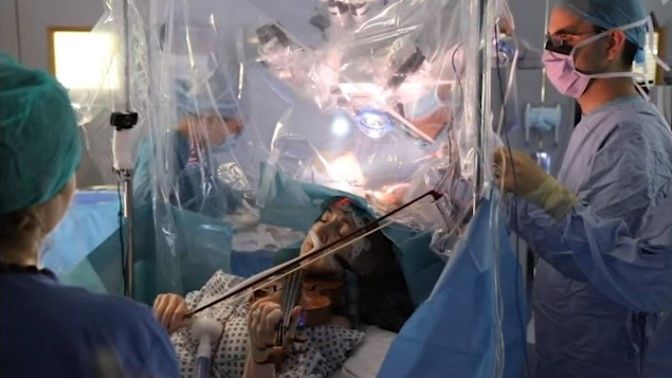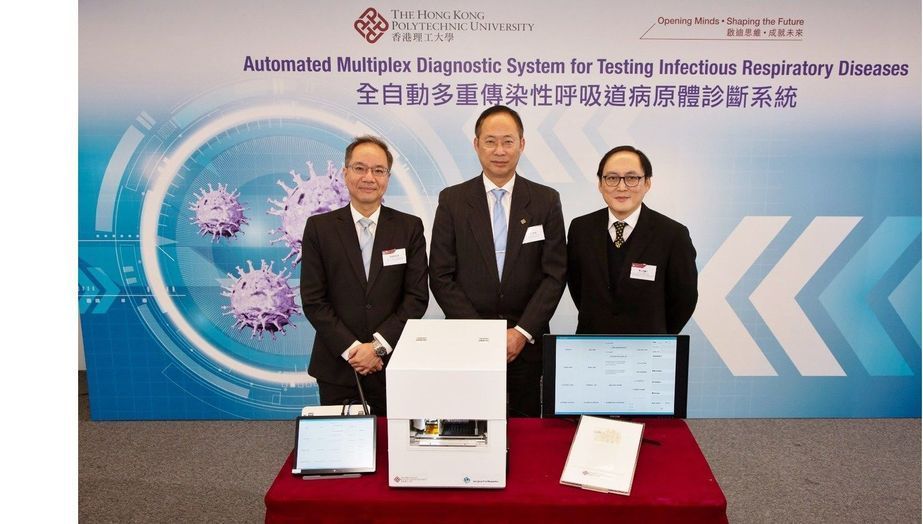Category: biotech/medical – Page 2,125
When Living 200 Year Becomes Normal — The End of Ageing (Medical Science Documentary) | Only Human
Do you want to stop ageing? Do you want to live forever? Can science help you cheat death? In this pioneering documentary, Professor Rose Anne Kenny takes us through the science and the consequences of living longer lives.
Imagine for a moment that old age became a thing of the past. Today, for better or for worse, it would appear that eternal life may soon be a reality. Some scientists are forecasting that the only way many humans will die is if they are shot or run over by a bus.
The programme unveils what is happening in age prevention, shows how we can lengthen our own lifespans and explains how some scientists now believe we are closer than ever to finding the Elixir of Life.
Such power over life itself poses many profound questions: what impact is it going to have on our societies? What preparations should our governments be making for an ever-ageing population? Do people really want to live longer and suffer the inevitable weakening of their capacities? And is it morally right to transcend human fallibility and assume the role of God?
Follow us on Facebook


You Ain’t Seen Nothing Yet
Never in history have we seen wealth concentrated (Apple is worth over a trillion dollars). Money and congressional power answers why legislators: let drug companies squeeze dollars from sick people, refuse to stop a president who winks and nods at Putin, at right-wing agitators, who stoke bigotry, or singles out Black, Hispanics, Jews, Muslims, immigrants, asylum seekers and refugees (let’s just lump them together). Fear of others comes from seeds planted early in life. Fear is personal — you don’t feel mine, I don’t feel yours.
But, alas, the future will be like nothing we have experienced. It’s a HUUUGE planet, with decades to come, which, if we lived long enough would from today’s vantage be unrecognizable. What we do know from our lives is that we are but a small part, not only small in terms of our kind or beliefs (political, religious, cultural), but small in influence over the planet’s trajectory (war, maybe atomic, population growth, immigration, climate, economy, racial, ethnic composition, e.g., in the U.S.).
Exceptionalism once stood for the idea that Americans served as an example of progressive values (democracy, justice and humanity), control over their destiny; could tame the environment, extract resources (oil, coal) without limit, and provide jobs for everyone through capitalism. For our successors, what they look like and what they believe in will go beyond change wrought by anything imaginable, today.

From ‘living’ cement to medicine-delivering biofilms, biologists remake the material world
Engineered living materials (ELM) are designed to blur boundaries. They use cells, mostly microbes, to build inert structural materials such as hardened cement or woodlike replacements for everything from construction materials to furniture. Some, like Srubar’s bricks, even incorporate living cells into the final mix. The result is materials with striking new capabilities, as the innovations on view last week at the Living Materials 2020 conference in Saarbrüken, Germany, showed: airport runways that build themselves and living bandages that grow within the body. “Cells are amazing fabrication plants,” says Neel Joshi, an ELM expert at Northeastern University. “We’re trying to use them to construct things we want.”
Engineered microbes shift from making molecules to materials.
How The Ultra Rich Are Trying To Live Forever
If you can’t defeat death, what if you could postpone it, or at least postpone the diseases commonly associated with getting old? Many people, especially the ultra-wealthy in Silicon Valley, are investing money into companies trying to answer exactly those questions.
» Subscribe to CNBC: https://cnb.cx/SubscribeCNBC
» Subscribe to CNBC TV: https://cnb.cx/SubscribeCNBCtelevision
» Subscribe to CNBC Classic: https://cnb.cx/SubscribeCNBCclassic
About CNBC: From ‘Wall Street’ to ‘Main Street’ to award winning original documentaries and Reality TV series, CNBC has you covered. Experience special sneak peeks of your favorite shows, exclusive video and more.
Connect with CNBC News Online
Get the latest news: https://www.cnbc.com/
Follow CNBC on LinkedIn: https://cnb.cx/LinkedInCNBC
Follow CNBC News on Facebook: https://cnb.cx/LikeCNBC
Follow CNBC News on Twitter: https://cnb.cx/FollowCNBC
Follow CNBC News on Instagram: https://cnb.cx/InstagramCNBC
#CNBC
How the ultra rich are trying to live forever.

PolyU develops the world’s most comprehensive automated multiplex diagnostic system for detecting up to 40 infectious respiratory pathogens (including 2019-nCoV) in a single test
HONG KONG, Feb. 11, 2020 /PRNewswire/ — Infectious diseases represent an important portion of global public health concerns¸ in particular with regard to the current global outbreak of novel coronavirus (2019-nCoV). The challenge of frontline diagnosis in hospitals, clinics and ports is that infectious diseases could exhibit similar symptoms or can be asymptomatic. The Hong Kong Polytechnic University (PolyU) today announced the development of the world’s most comprehensive automated multiplex diagnostic system (the System) which includes a fully automated machine and a multiplex full-screening panel for the point-of-care genetic testing (POCT) of respiratory infectious disease including the 2019-nCoV.
Dr. Mehmet Oz interviews Dr. Burzynski & Eric Merola
SUPPORT THIS PROJECT, BUY THE DVD (only $8.99 with coupon code: “burz51”): http://estore.burzynskimovie.com
For more info: http://www.oprah.com/oprahradio/Dr-Stanislaw-Burzynskis-Cure-for-Cancer-Audio
Burzynski the Movie: http://www.burzynskimovie.com/
Follow this film series on Facebook: https://www.facebook.com/BurzynskiMovie
Visit director Eric Merola’s website: http://www.ericmerola.com
Directed by Eric Merola.